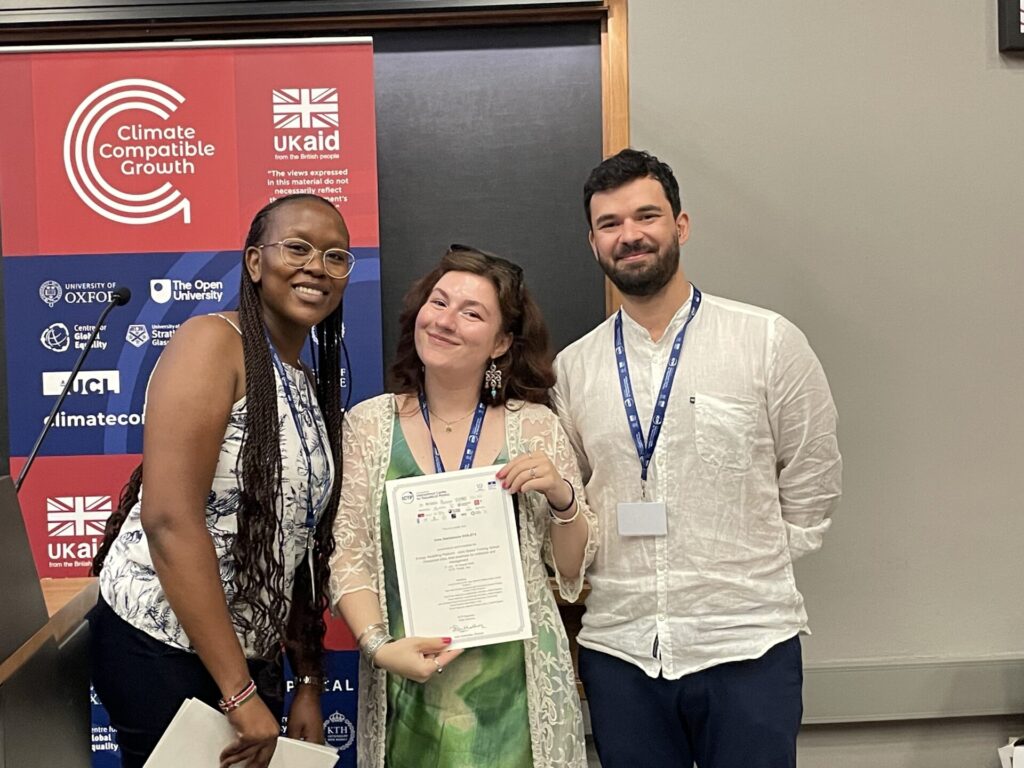
Irena Shaleva is a Digital Transformations Specialist. She is interested in Digital Transformations, Sustainable Development, Cybersecurity, Java programming and Youth Leadership. She is a former IAEA and SEforALL Intern and holds a Bachelor’s degree in International Sciences for Cooperation and Development, specializing in Sociology and Economics. She attended the Global Youth Climate Training Programme at CCG’s partner, the Smith School of Enterprise and the Environment – University of Oxford in December 2023. Irena attended the EMP-G in July and August 2025 at ICTP in Trieste, Italy which is where she spoke to CCG’s Peter Allen.
What inspired you early on in life to develop an interest in science and climate?
I had the privilege of growing up in the countryside of Italy and it gave me the blueprint for understanding how to live in a balanced way with nature and how important it is to be able to take care of our environment. Academically, I started in the international relations field, so that gave me a perspective on things like Sustainable Development Goals and the different social issues we have on a global level. But from there I wanted to adopt a more analytical, scientific approach, where I would have the chance to solve problems with algorithms, with logic, and with science. I’ve always been fascinated by that, inspired by my mother who is an engineer.
Tell me more about the role of your mother in your career choices.
She showed me the beauty of having a scientific mind, and how much it is actually linked to nature and the environment because it requires you to observe the environment around you. And if you see that something needs to be improved, like climate change, then you can actually take responsibility for making a positive contribution to it.
It was quite unusual for my mother to be an engineer. She even wanted to become a pilot. But in the 90s, in Bulgaria, there was no programme for women to do that. Thankfully there was a chance to study engineering. So, she was the first person in our family to go further in her studies and the first person to become an engineer (in the field of nuclear energy). That was incredibly challenging for her, but it was also very, very rewarding to break through the barriers and make her contribution and point of view. So that is what inspired me.
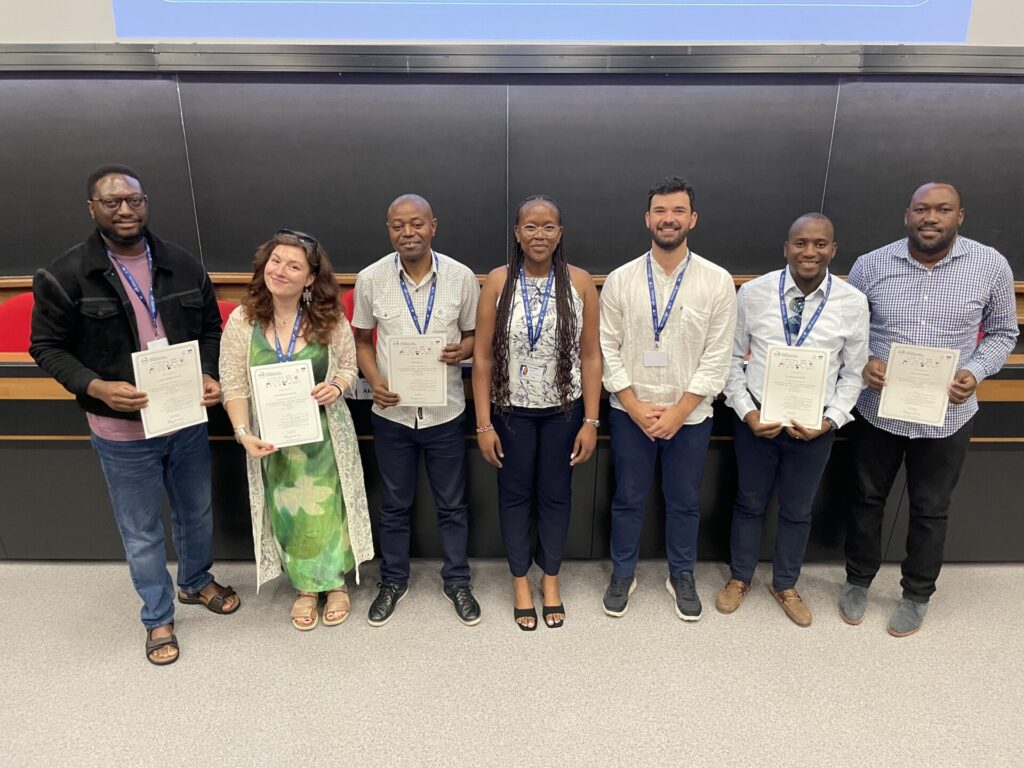
How did your interest in the world of climate and energy develop as you got older?
This happened because I decided to combine my international relations degree with computer science, and this gave me the tools to be able to solve problems in an analytical way. One of the most prominent questions is climate change, and to be more specific, I would say disaster management and emergency preparedness. I remember being in Italy as a kid and looking at the news and seeing one disaster, one earthquake, one storm after another. On one hand, it’s fascinating to see the power of nature and how much we’re just a small unit in a much bigger system. But on the other hand, you also see the repercussions it has on people and their lives.
So, this inspired me to focus my attention on the correlation between climate change and people and society. I think that disaster management is the field that I want to develop further in future.
This links to what I studied at the EMP where I did the Geospatial Data Management track. My trainer, Seabilwe Tilodi (centre, left) would say that it’s a very flexible 360° software that gives you the chance not only to do energy planning, but also to use it for whatever specific niche you’re working with, which includes disaster management.
What was the focus of your project at EMP?
It was about writing a data governance plan for Italy. I chose the industrial plan that Italy has signed for 2024-28 which is a cooperation between the government, the ministries and private institutions. They’re going to work on the existing power lines to enhance them because there are certain regions where there is congestion of the lines. I think that, considering the current geopolitical situation, it will also focus on enhancing the independence of Italy from external sources of electricity. I wanted to to look into it and see if we could address areas where data is missing.
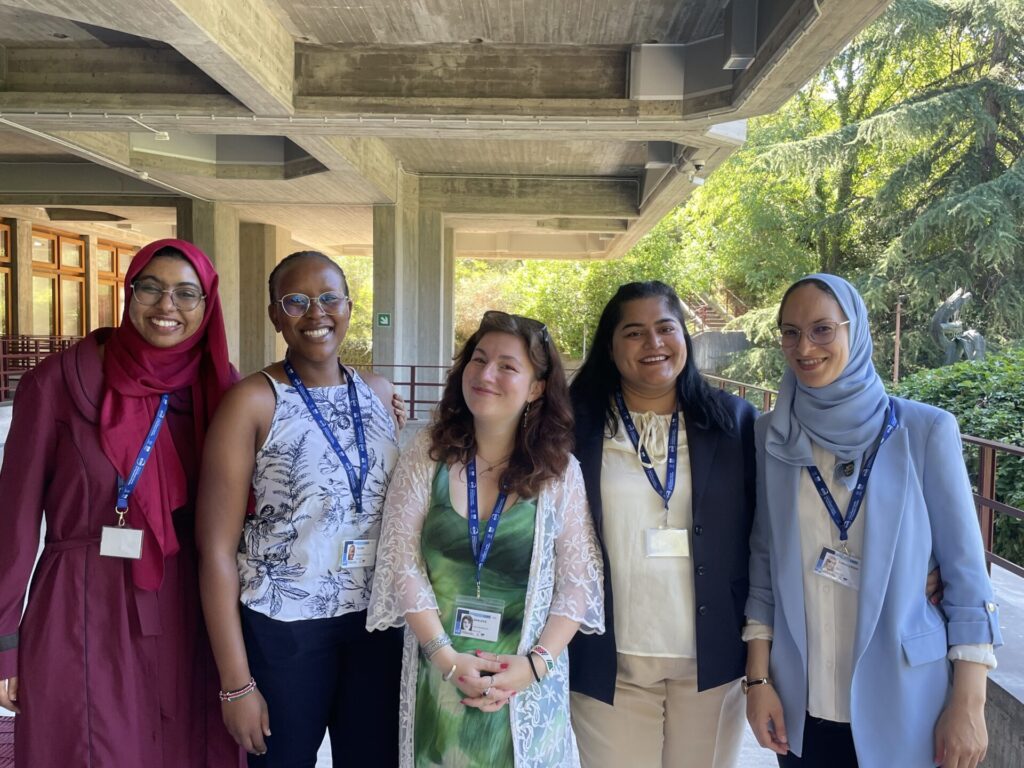
That sounds fascinating. Let’s talk now about your support networks. Who do you turn to for professional support?
The support network is absolutely fundamental. No person is an island. I think it’s very important for us as professionals to be humble and respectful and to share opportunities with each other. I had the pleasure of meeting incredible professionals, incredible women during the EMP: Seabilwe, Salsabila, Rakia, Naval and one thing that I really appreciated about them is that, even though they had so much more experience than me, they never separated themselves from us. They interacted with us outside of classroom hours and that made a real difference. They were very kind in sharing their expertise and how available they were for all the trainees. I don’t take this for granted and I think this is an incredible characteristic.
Beyond the EMP, I noticed a network of international women in Austria. What role does that play in our life?
NIWA (the network of international women in Austria) is very close to my heart. It was started by two very brilliant women that came to Austria and saw the challenges that you face as an expat and they decided to create a safe harbour, an inspiring place for all other expat women. It’s very important to share your experience and to discuss the obstacles because we may be going through the same challenges. If you do not share it, you yourself do not grow and the environment of which you’re part doesn’t grow. NIWA has been setting the bar for what being professionals means in Austria and I’m very grateful to be part of it.
On the less positive side, have you there been times when you’ve experienced negative feedback or encountered barriers because of your gender?
Oh wow, I cannot remember a time where I haven’t, so it becomes almost normalised – which we should pay attention to because it should not be normalised. But it definitely gives you a lot if you see it from a personal growth point of view. You become more resilient and learn to take things less personally. The challenges that I have seen as a young woman are around not being taken seriously, or having to do twice as much work and still hearing the question “but are you sure?” I always bite my tongue – what is there to be unsure of? I’m aware of the amount of work that I have put in so yes, I’m sure. You have to learn to not take it personally and be a bit detached from it, and to not question your own self. What you’re doing is inherently valuable and your identity and value as a human being should never be questioned in the first place.
Expanding on that, what are your views on gender issues in the climate crisis discussion? How do you feel about the current approach to try to address the climate crisis as it still doesn’t feel to me like an approach that is equal in terms of gender.
It is a very, very important topic and it’s also very complex. As a woman, I’ve seen it with my friends, with my family members; there is a lot of work women are doing that is unpaid and unrecognised, as carers for example, but also as professionals. We’re doing so much work and in moments of disaster, this work becomes even heavier because we have to manage a lot of things at the same time. I have faith that it’s just a few “rotten apples” that are making it more difficult for us as women. Not all people are biased in such extreme ways, but if people don’t do something about it, they are enabling these inequalities and these challenges. That is the problem for me; if you see something, then you should say something and you should support women (or anyone) to have fewer obstacles. So, in the rooms where these decisions are made, they should create spaces for women. If you are pregnant, or young or older, you still have a logical mind that could bring a solution because of how many things women are used to juggling at the same time. That characteristic is not a deficit; it’s a plus that needs to be shared for the world.
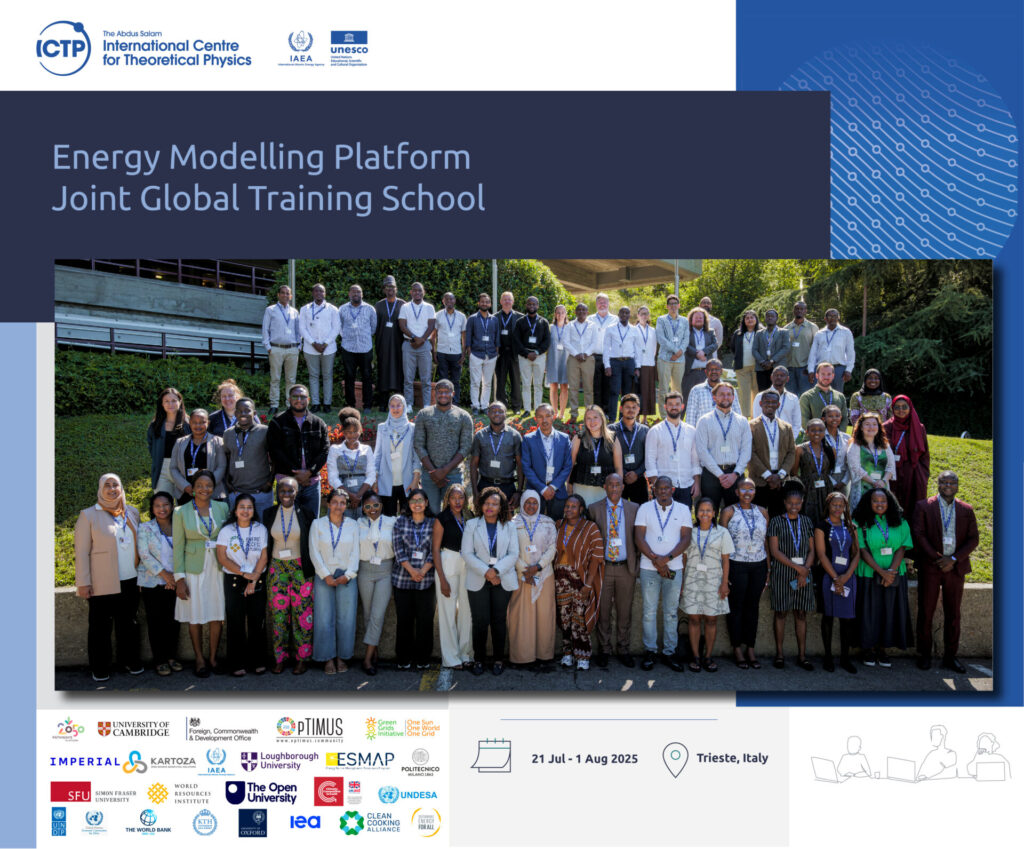
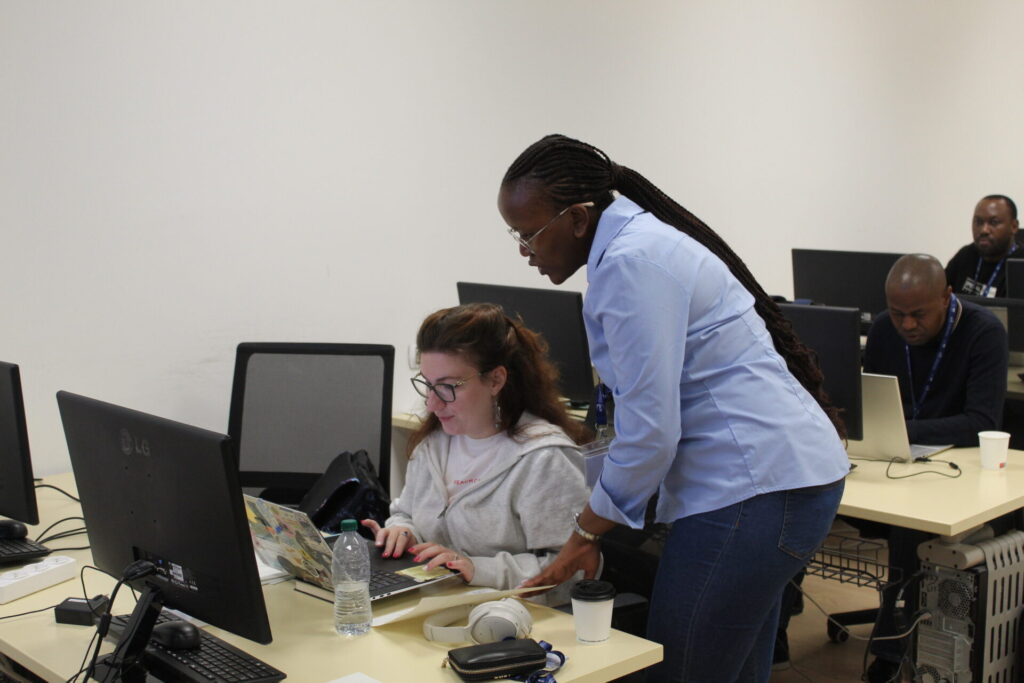
Let’s talk briefly about EMP. Why did you go?
When I discovered it, I thought it was an amazing opportunity, so I paid for it with my own resources, and it was worth every single penny. It was amazing because there were professionals from all parts of the world with so many more challenges that I could even imagine as someone from Europe. It makes you question how much privilege you have as a European, and how much you take for granted.
I saw it when I was doing the data governance plan for Italy and when I put into the model the power lines compared to Zambia or Mozambique, there was such a huge difference, so it put things into perspective.
First of all, I’m never going to get tired of highlighting how important it is to be a good human being before being a good professional, because if you’re missing the humanity, then your professionalism is not as good as you think it is.
The people that I met and talked to would always have a word of encouragement, even though they would have 20 years’ more experience than me. They would share, they would support, they would encourage. This is so important because it gives you the chance to learn as a young professional.
You’re not excluded from the room, your work is taken into consideration, and you can learn to become like the professionals you’re surrounded by. I would definitely say that if you have the opportunity to participate in this school, you should go because it definitely leaves a very positive mark on you.
Thank you so much for sharing your thoughts with us.
